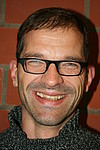lab rotation 1:
Reverse genetic studies of viral infections
Contents:
- Characteristics of viral infections
- Targeted manipulation of viral genomes by reverse genetics
- RNA technologies (in vitro transcription, isolation of viral RNA)
- Methods to detect and quantify viral infection or replication (plaque assay, immunofluorescence, RT-PCR, growth curve analysis)
- Cell culture techniques with cells of human, bovine
Qualification objectives:
- Understanding of viral infections of non-cytopathogenic and cytopathogenic viruses
- Overview of current methods for the systematic courts mutagenesis of viral genomes
- Applications of various RNA technologies for the study of viral infections
- Overview of current methods of virus detection in cell cultures
- Working under BSL2 conditions with viral pathogens
Allocation of credit and grading by:
- Oral presentation and written report
lab rotation 2:
Molecular biological studies on virus-host interactions
Contents:
- Characteristics of viral infections
- Influence of the host cell to viral infections
- Characterization of host factors of viral infections
- RNA technologies (in vitro transcription, viral RNA isolation)
- Methods to detect an quantify viral infection or replication (plaque assay, immunofluorescence, RT-PCR, growth curve analysis)
- Use of stable cell lines to study and characterize virus-host interactions
- Cell culture techniques of human, bovine and primary cell cultures
Qualification objectives:
- Understanding of viral infections not cytopathogenic and cytopathogenic virus
- Overview of current methods for the characterization of virus-host interactions
- Applications of various RNA technologies to study viral infections
- Overview of current methods of virus detection in cell cultures
- Working under BSL2 conditions with viral pathogens
- Working with stable cell lines
Allocation of credit and grading:
- Oral presentation of results and written report
lab rotation 3:
Molecular biological studies to charcterize biogenesis of viral replication complexes of Hepatitis C Virus
Contents:
- Characteristics of viral replication complexes (RC)
- Functions of viral non-structural proteins in the viral life cycle
- Characterization of determinants of NS-Protein function by reverse genetics
- RNA technologies (in vitro transcription, viral RNA isolation)
- Viral methods to detect viral replication (immunofluorescence, RT-PCR, replicon assays, reporter assays)
- Use of stable cell lines to study viral replication and RC formation
- Cell culture techniques of human cell cultures
Qualification objectives:
- Understanding of viral replication process of Hepatitis C Virus
- Overview of current methods for the characterization of virus-host interactions
- Applications of various RNA technologies to study viral replication
- Overview of current methods of viral replication detection in cell cultures
- Working under BSL1/2 conditions (e.g. with HCV subgenomic replicons, Vaccinia virus etc.)
- Working with stable cell lines
Allocation of credit and grading:
- Oral presentation of results and written report

- Teaching
- Teaching activities
- Lab Rotations
- IB-Modul LS4115/Virology
- MLS-Modul LS5111/Virology
- Bachelor and Master theses
- PhD theses

